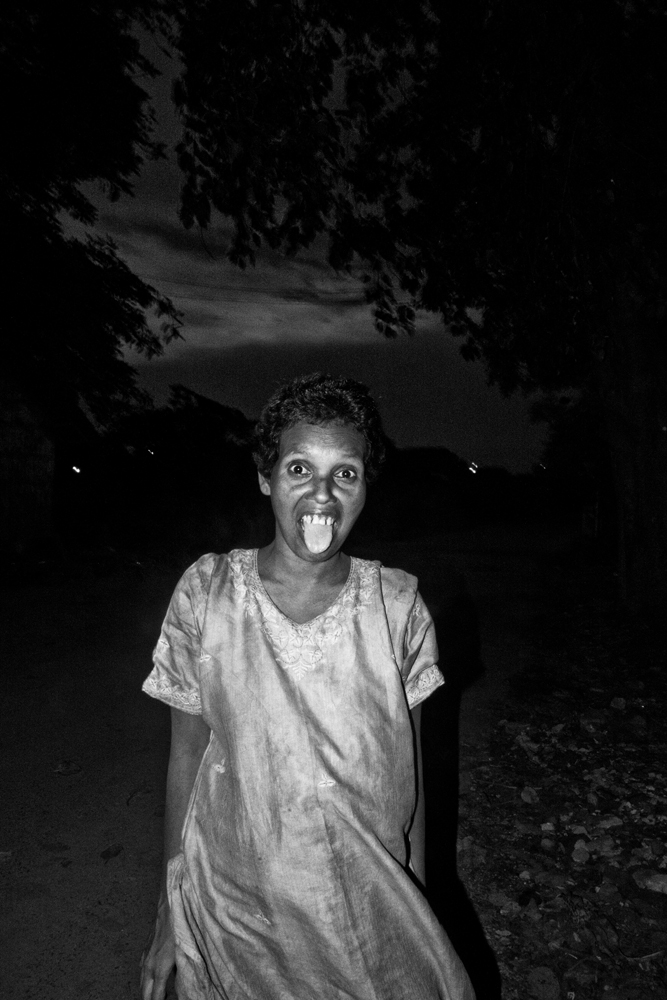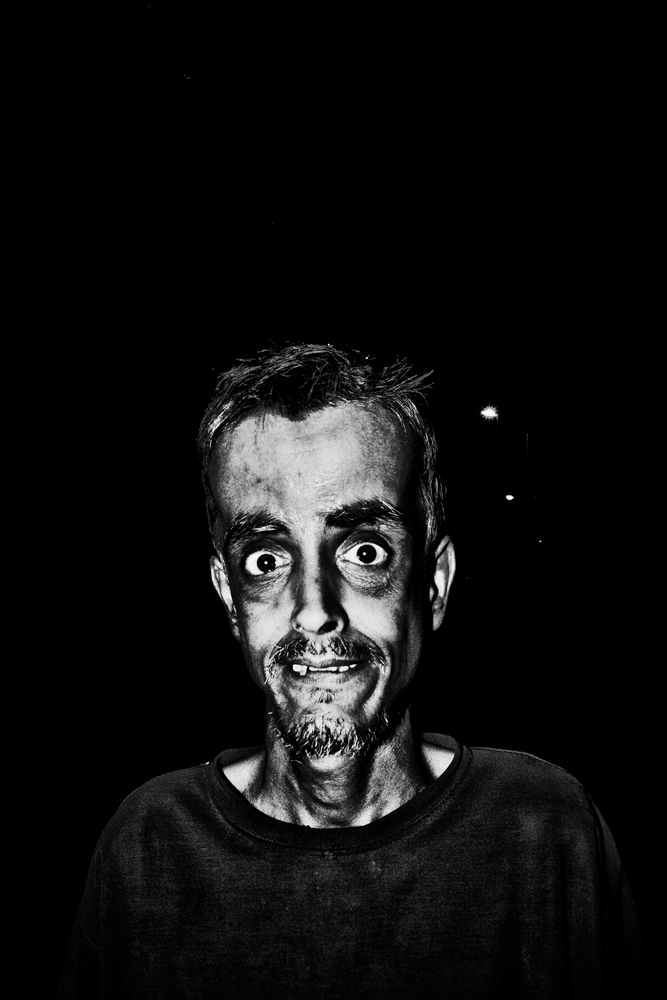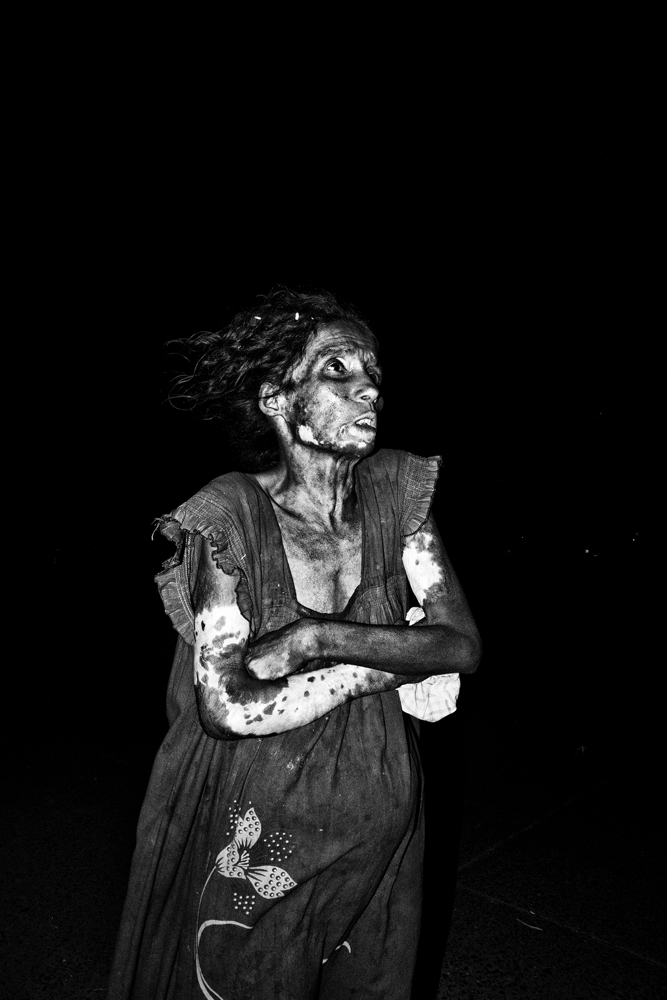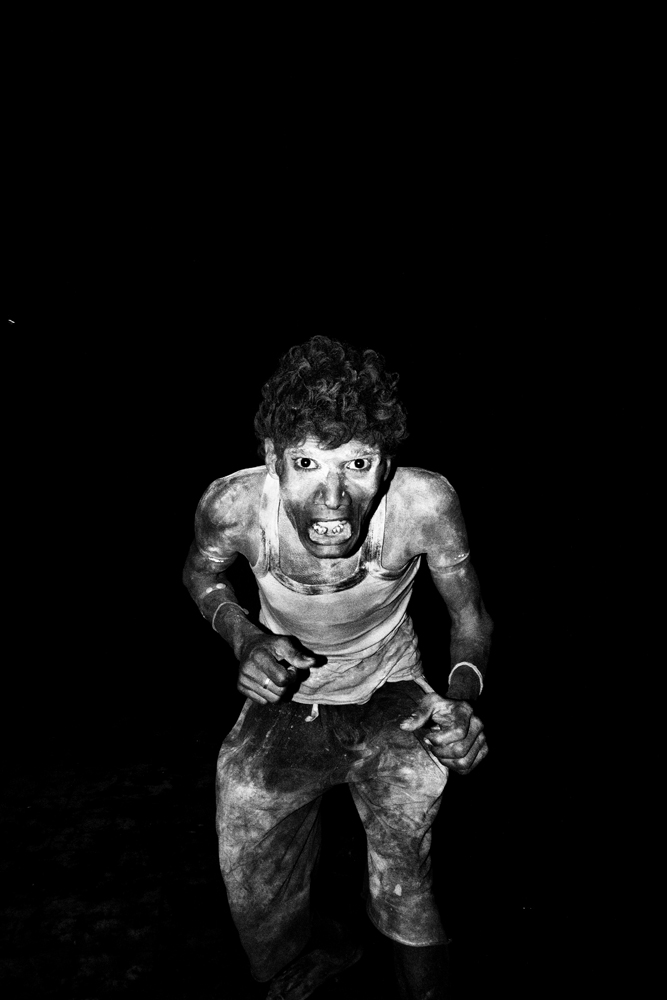
Mounted on a backdrop of black cloth with a spotlight on each print, the Angst exhibit leaves viewers with the eerie feeling of being watched by those they would rather walk past quickly in a dark street. And yet, they are difficult to look away from. For Gupta, intimacy with the one being photographed is important. “I think I am so vulnerable, that people trust me, open up to me. I am not a tough macho guy, an intimidating Rambo,” said the 27-year old photographer. The portraits are collaborative in nature, he added. “It’s as if we’re making fun of the rest of the world”.

Gupta got his first camera in 2005 – a small digital camera gifted by his father – and he has been obsessed with photography ever since. He eventually went on to earn a diploma in photojournalism from the Ateneo de Manila University in the Phillippines, and has participated in several photography workshops over the years by the likes of Antoine d’Agata, Munem Wasif and Olivia Arthur.

Gupta said he draws his inspiration from the novels and short stories by Hubert Selby Jr, Haruki Murakami and the poetry of 19th-century French poet Charles Baudelaire, or the bleak image of “mad men” and “drunkards” keeping warm by a blazing pyre at Nimtala Ghat on a winter night in Kolkata. “I think I’m obsessed with everything dark.... We are all dying a daily death. Anything which addresses loneliness, decay inspires me,” Gupta said.

Gupta shares the feeling of being invisible and outcast with his subjects. He said he never really felt he belonged anywhere and has been subconsciously working on themes of loneliness, madness and death for some time, “trying to express how it feels to be an outcast”. Eventually, in 2013, Gupta started putting together Angst, “a conscious effort at visually expressing himself”.

Gupta describes his photography as “self-expressive”. “Photography helps me purge all my anger and fear and anxieties, it helps me channelise euphoria as well,” he said. The images have been shot in the streets of Kolkata, but Gupta points out that they are not just a reflection of the metropolis, but rather of a “fictive hell-hole where sunlight and hope do not filter in” – which could be anywhere. They exist in the same world we inhabit. Most would just rather not notice.










